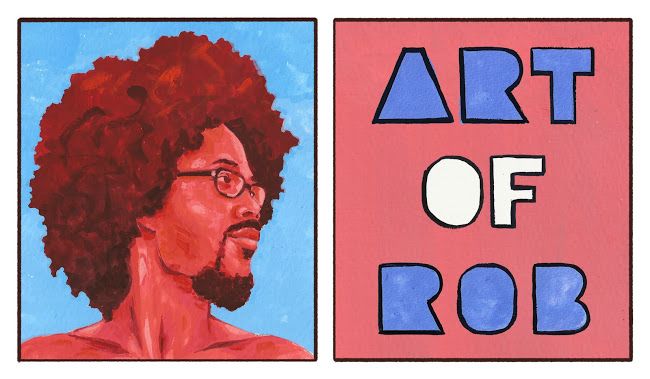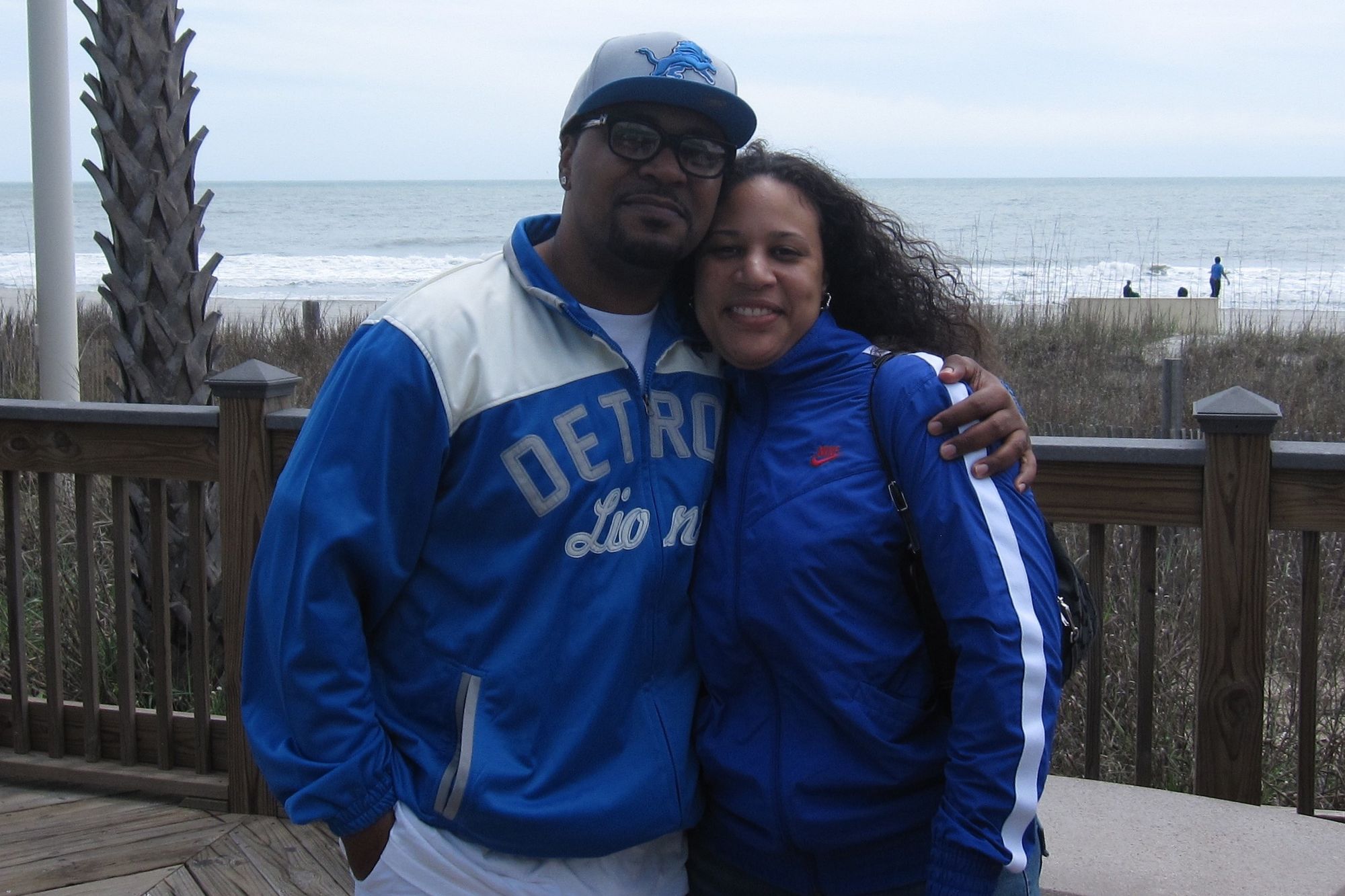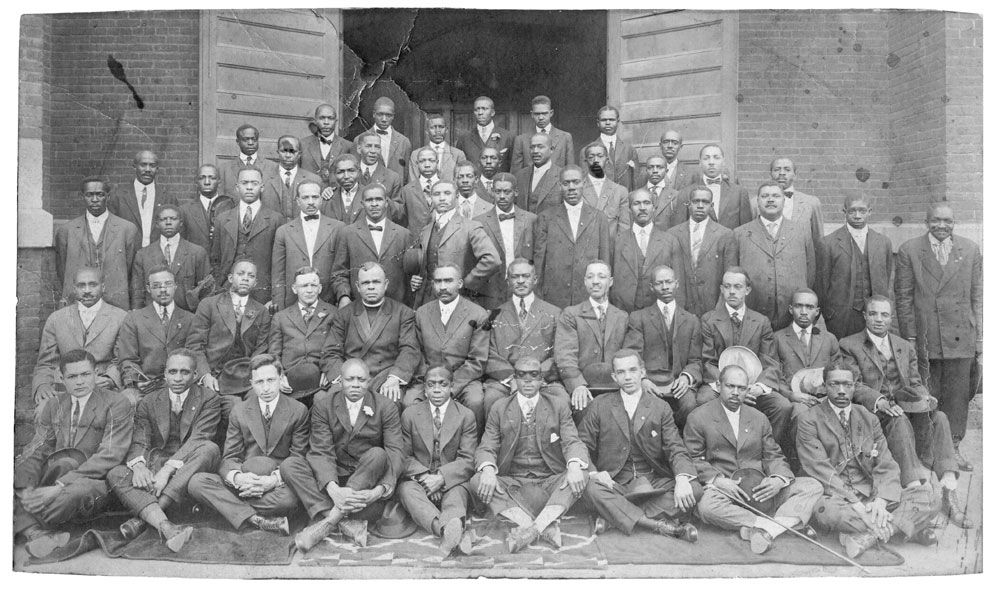For Robert Liu Trujillo, art is more than a career. It’s activism. It’s a movement. It’s a community. Coming up out of California’s Bay Area, Rob recognized his passion at a young age and is paving the way for young Black artists and activists to have their voices heard. Through his work with the “Trust Your Struggle” collective and his leadership in starting the “Black is Beautiful” challenge, Trujillo is setting the standard of what it means to highlight and uplift the Black community.
We got the chance to talk to Rob about his artwork, his influences, and the amazing work he has on the way.
Jouviane: I’m always curious when speaking to artists and how they got into the craft. Can you shed some light on how your art journey began?
Rob: I grew up an only child, and since I didn’t have any siblings, I had a lot of me-time. When I was a little kid, I started noticing Bell Biv DeVoe and their airbrushed clothing and wondered what is that? How did they get that? So, my mom took me to a place here in the Bay Area called HillTop Mall where they do that. The person doing the airbrushing happened to be what we call a king in the graffiti world. He was a very famous artist by the name of Mike “Dream” Francisco in Oakland, California. Once I understood who he was and what he did, I pretty much became obsessed with the graffiti art world. Through that, I met lifelong friends and just got a lot of discipline, technique, and style from that art form.
Jouviane: I’ll definitely have to look up some of Dream’s work, but in addition to him, who are other artists that you would say inspired you?
Rob: Dream is definitely one. There’s another graffiti artist we call “Writer” by the name of Spie. One of the reasons they both inspired me is because they used graffiti art and political messages and put them together. Mode2 is another Black artist from the UK that inspires me in the graffiti art world. After my teenage years and working in graffiti, I moved onto murals, and some of the muralists that inspire me are people like Juana Alicia. She’s an incredible Bay Area muralist who has helped influence my work over the years.

Jouviane: You mention diving into art at a young age, but when did you decide to pursue it as a career?
Rob: I started selling my artwork in my early 20s, and when I decided that I wanted to get into art as a career, it was through illustration. I was in my mid-20s when I started taking it more seriously.
Jouviane: After doing a deep dive into your work, I see that your art has spanned different mediums. Do you have a favorite?
Rob: Like you mentioned, I’m a multidisciplinary artist, so I’ve worked in illustrations, public art, murals. I’ve worked in children’s books. I would say for making artwork currently, one of the most important things is to tell a story that hasn’t been told before whether it be on a wall, in children’s books, or elsewhere. There are so many barriers for people of color to tell their stories authentically, to make a living or to reach a larger audience. So telling untold stories is really important to me.
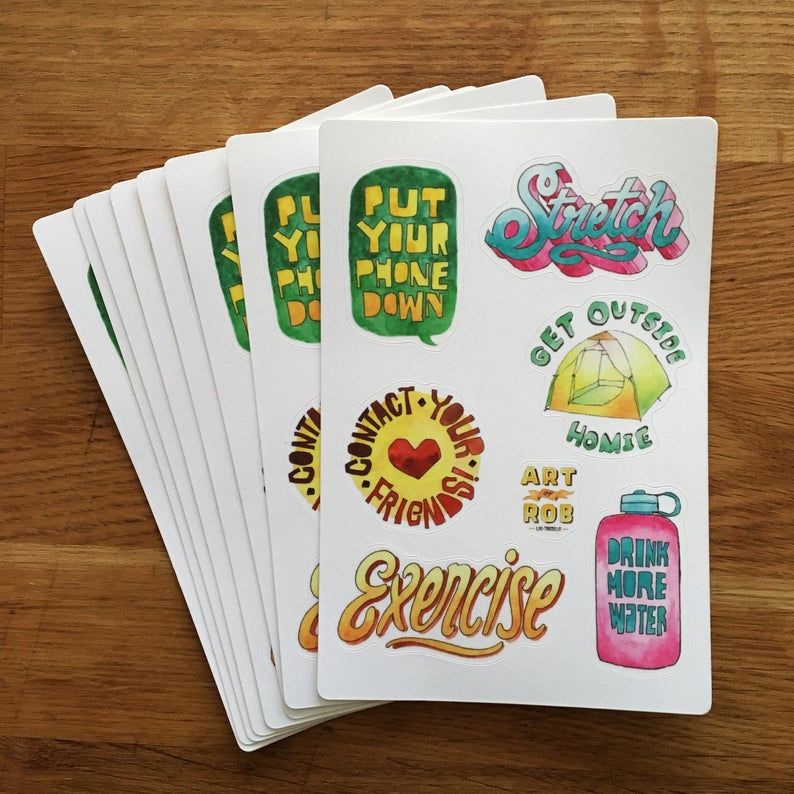
Jouviane: In speaking of the barriers that people of color face in telling their stories, as a Black artist, what has been the biggest struggle you’ve faced in your artistic journey?
Rob: I think one of the hardest things has been being able to find mentorship. There’s definitely a long history of Black artists and artists of color, but in terms of proximity with my family, personally, there were no visual artists. There was no one that I could look to for guidance, and I actually ended up finding it in my peers, which is great. You can learn a lot from your fellow artists, but it would’ve been nice to have older artists to get knowledge or information. It did come later and I did eventually meet older artists in fine art and illustration, but I would say as a young person, it was a lot harder to find mentorship in that way.
Jouviane: Thinking back on where you started in your youth to where you are now, where would you like to see yourself and your artwork go or grow in the future?
Rob: Starting off with children’s books, in the next five to ten years, I would like to be able to have a steady stream from both the traditional and self-publishing worlds. Not only would I like to write and illustrate my own stories, but also to be able to work with other writers and illustrators as well. I’d like to broaden the canon of stories told, but also bring up younger writers and artists to help them at the start of their journey.
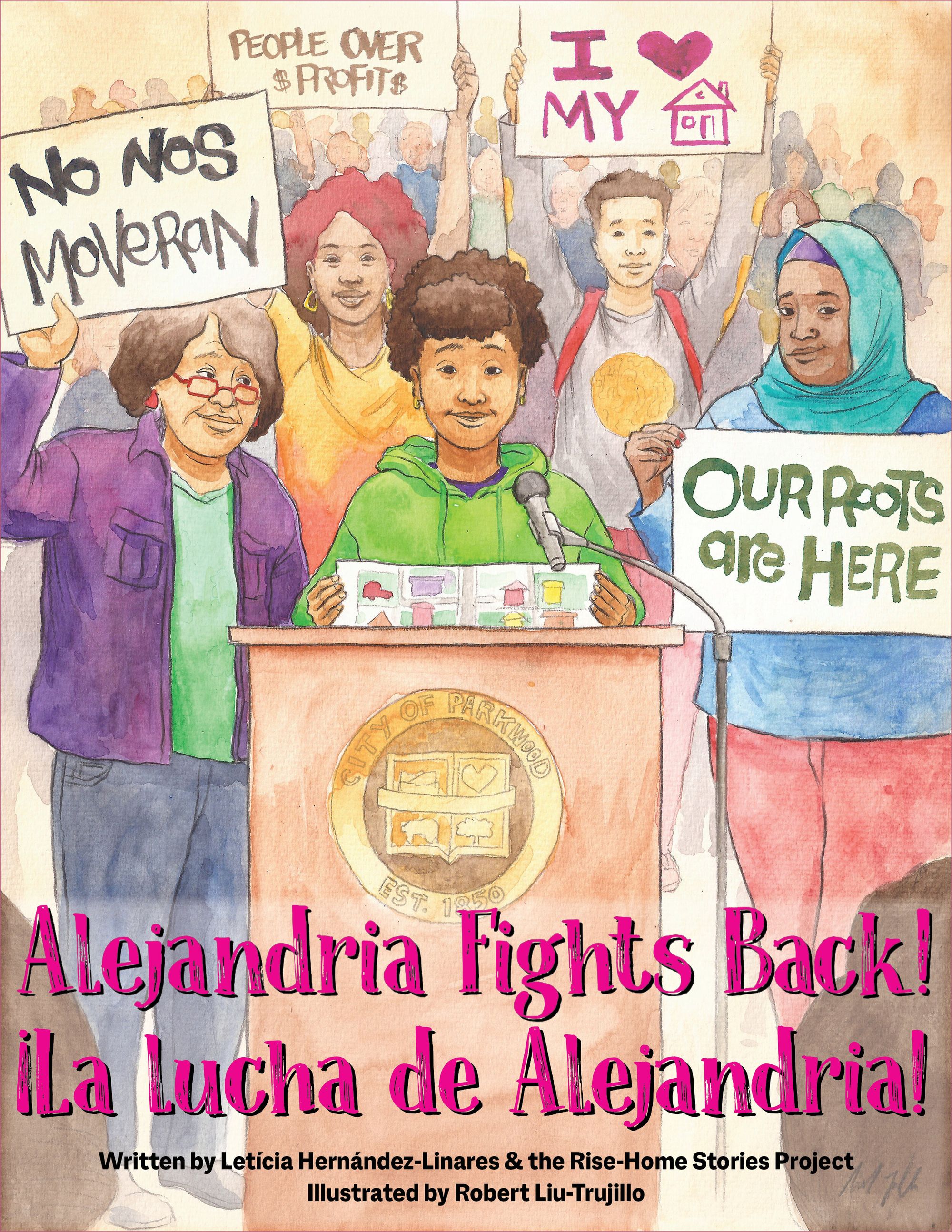
Jouviane: Now I know this might be hard to narrow it down, but do you have a favorite children’s book that you’ve worked on?
Rob: Recently, I finished a book called Alejandria Fights Back. It’s a story about an Afro-Latina girl whose family is going to be evicted. She decides that she cannot and will not leave her community, and she organizes her community to respond to this eviction notice. It was a very cool book and experience because as the illustrator, I worked with the author, a team of people who were real activists who work in the world of housing, and filmmakers who do a lot of work on narratives. Alejandria Fights Back is coming out later this year, in August, and is published with Feminist Press in New York.
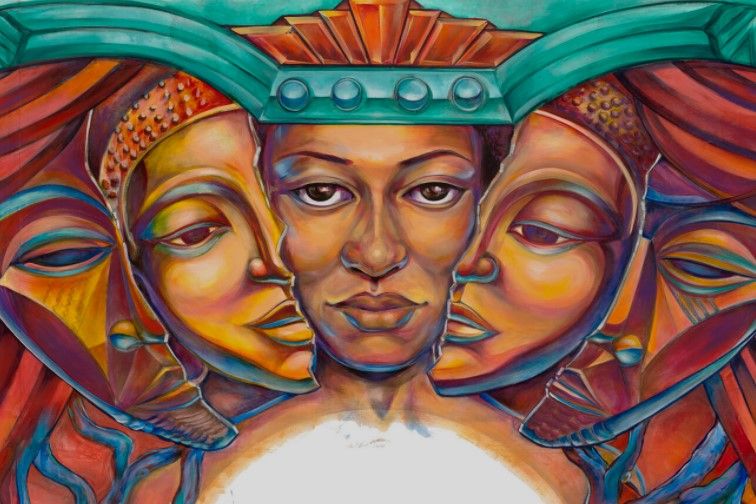
Jouviane: So I’ve seen three words pop up around your social media pages and your website. Could you tell me a little bit about “Trust Your Struggle?”
Rob: Trust Your Struggle is a collective of artists that was formed in 2003, and I was one of the early co-founders. It’s made up of artists and activists who work around social justice, and we do it through public art like large scale murals and gallery exhibitions that are free to the public. In the past we’ve done workshops with young people and organizations. It started off very small, and it’s gotten much larger. We’re based in the Bay Area, Los Angeles, Sacramento, and Brooklyn, and we’ve gotten to paint murals all over the U.S. and all over the world. It’s usually with a social justice message or sometimes collaborating with a local school, group, or organization to uplift the message of their community.
Jouviane: Another set of three words I want to bring up and ask you to elaborate on is your “Black is Beautiful'' challenge. What is it?
Rob: In 2016, there were two people who influenced me to start the challenge. This year was the first year that I’ve made some type of video to publicly explain what it is. I was inspired by Joel Christian Gill. He’s a comic artist and he was doing something called “28 Days Are Not Enough.” He was highlighting Black people that we don’t often hear about, and that is one of the main tenets of Black is Beautiful. We’re trying to highlight people, institutions, or movements that we don’t hear enough about. Everyone hears about Malcolm and Martin, but not necessarily know about Bayard Rustin or Marlon Riggs. It’s basically an art challenge to work on your skill and craft if you’re a visual artist, and this could be an illustration, photography, or collage. It’s to work on your technique and skill but also to highlight Black people we haven’t heard of before and then to share their story so others can learn about them. The second influence to start this challenge came from Jake Parker. He started a challenge that’s worldwide now, called Inktober, so that’s what led me to starting the Black is Beautiful challenge.
Jouviane: If there’s one thing you could tell our Official Black Wall Street readers about you, your artwork, and your message, what would it be?
Rob: I would say that there’s great power in community. It’s really powerful to be able to support each other as Black-owned businesses, to lift each other up, to share resources - and not only to do this from peer to peer, but to help younger entrepreneurs or artists and build them up so the community can grow stronger. This is not just to build the community in wealth but in knowledge and resources. So I would say building community is probably the most important thing.
Jouviane: What are some ways in which the OBWS community and the Black community, in general, can support you?
Rob: I have a shop where people can support by purchasing merchandise, artwork, or books. I also make custom art through the shop. Another way is just following along on the journey on whichever platform feels the best.
FOLLOW + SUPPORT ROB
His Shop
Instagram
Blog
Trust Your Struggle
Black Is Beautiful Challenge
